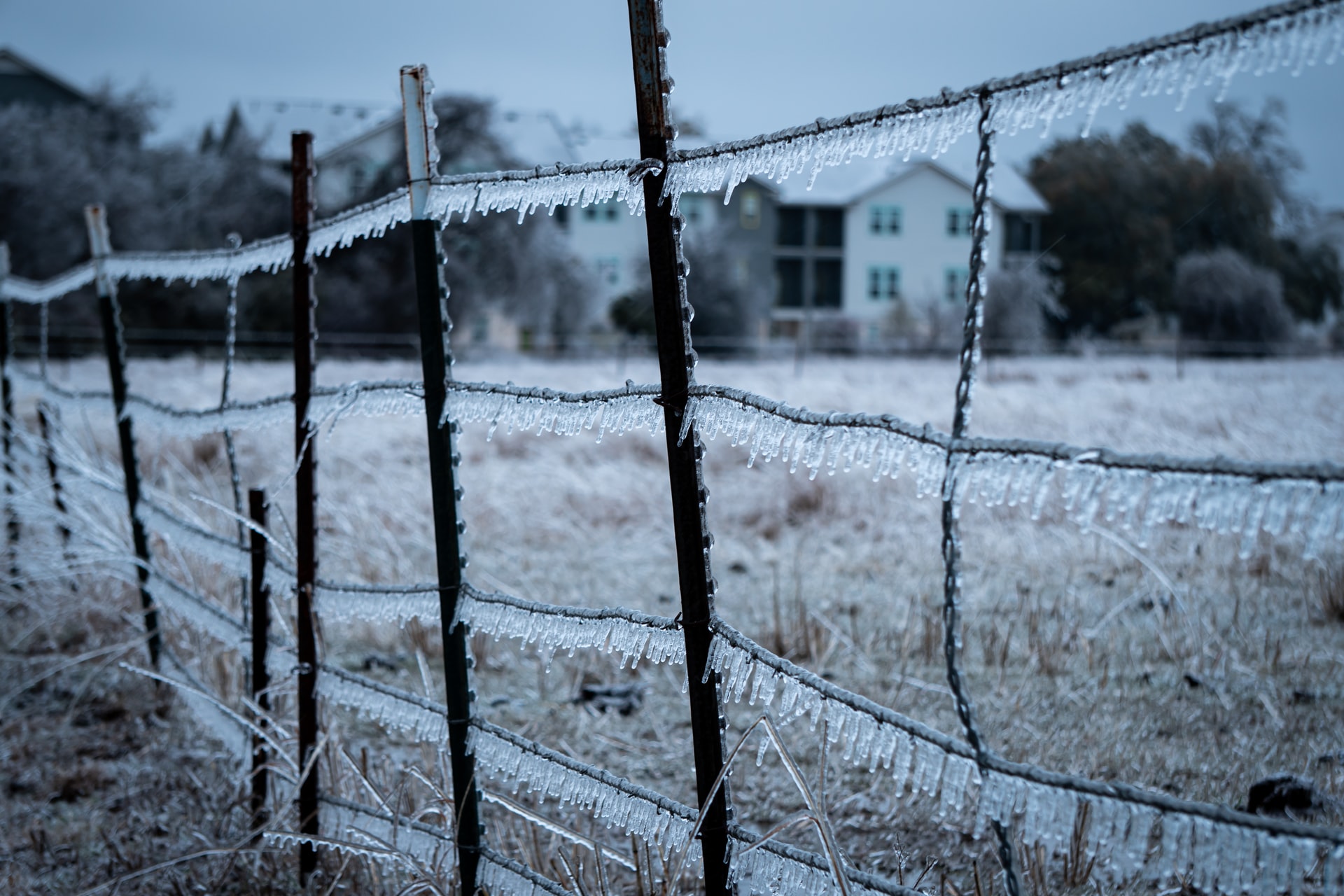For those who don’t know, I currently work at a call center where we mainly act as middlemen between towing companies and insurance customers needing roadside assistance. You get the occasional rude caller, but it’s a pretty slow and easy job most of the year until things start to pick up in the winter time. Even winter isn’t much busier the entire season, there’s just crazy spikes that happen after snow storms that lead to us having back-to-back calls for more than a week sometimes. Aside from dispatching roadside assistance, we also handle after hours filing of auto accidents and property claims for a few different insurance companies. I usually file a few auto accident claims per night, but property claims are pretty rare, with the most common being a tree falling on a house or something due to extreme weather conditions.
A couple of snow storms happened around Valentine’s Day, so calls picked up as usual, but I noticed something really strange almost instantly. These storms were happening across large parts of the US and there was a pretty even distribution of the increase in roadside calls, but I was getting an abnormally high amount of property claims — even by winter standards — and they were all coming from one insurance company in one state: Texas. I don’t know if I’m legally allowed to say which company this was, but I’d guess that I usually file about 10 – 15 property claims per year for this company, but out of nowhere I was starting to file like 10 – 15 property claims per night for them. This probably happened for a week straight and all the claims were for the same reason: water pipes bursting.
After I’d gotten like 10 of these calls back-to-back the first day, I finally asked a customer what was happening, and they explained that the storms caused their power to go out across the state and water pipes everywhere were bursting from freezing up. That obviously didn’t sound right to me because other states get even colder than Texas had gotten every year and I don’t think I’d ever filed a claim for a water pipe bursting before this incident. Being the Marxist I am, my first guess was that Texas must’ve cheaped out on infrastructure, but I didn’t have any evidence to back it up yet and didn’t know where to look to find any.
Over the next few days I noticed the public start to catch wind of this happening, and I’m not able to scroll back far enough on my Twitter page to double-check (apparently you can only see up to 3,200 tweets on your profile), but I believe I was on my way to work on the night of February 17th when I saw a tweet with a map that showed Texas’s power grid was separate from the other two in the country. That made me feel like my first guess might have more merit than I initially thought, but I didn’t throw it out there until later. After I clocked into work and got two more of those pipe bursting claims back-to-back, I finally decided to tweet my question of how much capitalist “economy” might have to do with this.[1]
Quick detour from the story, but this’ll tie back into it, just stick with me.
I don’t pay for cable because I’d probably only use it to occasionally watch awards shows anyway, but after I got a Roku TV for my room a few months ago I wondered if there were any radical or at least “progressive” channels I could watch on it with my Wi-Fi and, after digging around on Wikipedia, I found out about Free Speech TV. Everything on there’s solidly from a “progressive” liberal perspective, but it’s the closest thing I’ve been able to find to socialist programming, so it’s better than nothing. I only watched it here and there until I bought a pretty cheap stationary bike two months ago and started riding it every morning after work to lose weight. The Thom Hartmann Program starts airing around the same time I start riding it, so I’ve been watching it every weekday ever since. Again, he’s solidly a “progressive” liberal, but he knows his stuff, and it’s entertaining watching him debate conservatives and unironic reactionaries from time to time.
Anyway, the next morning after I tweeted that I was riding my stationary bike while watching Thom Hartmann, as usual lately, and I heard him mention to someone who called in that experts warned Texas’s power grid operator multiple times to “winterize” its grid due to global warming, but didn’t do so, favoring giving more profits to their shareholders instead. I felt anger at their negligence, amusement at their stupidity, and vindication that my instinct was correct right away, but didn’t want to take this at face value until I’d done some reading myself.
Well, I’ve done the reading now and Thom Hartmann was right. Climate change has weakened the Arctic’s polar jet stream, allowing the cold air from the polar vortex — which is usually held back by that jet stream — to travel south, causing freezing temperatures in places that rarely experience them.[2] This was almost certainly the cause of two previous snowstorms which led to similar power crises for Texas in 1989 and 2011. I don’t remember hearing about this happening in 2011, but it might be because I was tucked away in Alturas, California at that time, completely disconnected from regular society’s discourse. Anyway, experts issued reports after each incident calling for the winterization of Texas’s power grid,[3][4] but — rather than make this mandatory — the Electric Reliability Council of Texas (ERCOT) decided to make it a voluntary guideline, which — predictably — wasn’t widely adopted.
To understand why Texas’s power grid isn’t weatherized while the rest of the country’s is, you have to understand one thing: Texas isolated its power grid from the rest of the country solely to avoid federal regulation.[5] Texas is the only state in the contiguous United States with an independent power grid, and it has the only major U.S. power grid that doesn’t have a capacity market — a system that pays operators to be on standby to supply extra power during extreme conditions.[6] Instead, it relies on a wholesale market, where free market pricing serves to incentivize generators to provide daily power and to make investments to ensure reliability in peak periods. This system relies on the theory that power plants should make high profits when energy demand and prices are high, providing them ample money to make investments in improvements like winterization, for example.
But they obviously didn’t do that. Why? They didn’t do it because corporations have a contractual obligation to their shareholders to maximize profits. Corporations by and large won’t voluntarily spend more money than they’re required to for any reason.
Still, it begs the question of how much money winterizing Texas’s power grid would cost. The same report from 2011 estimated a price of $125 million to $1.75 billion for 50,000 gas wells,[7] so going off Texas’s 2019 count of almost 123,000 gas wells, the grand total could run anywhere from $307.5 million to $4.305 billion. I’m not sure where to find it online, but I’m willing to bet Texas’s power companies have collectively paid their shareholders much more in dividends than even the high-end of that estimate over the past decade.
So, how much could the damage caused from Texas not winterizing its power grid end up costing them? One firm projects anywhere from $195 billion to $295 billion.[8] This factors in the potential long term economic cost of everything from temporarily closed stores and factories to vegetable and citrus crops likely being destroyed for several seasons to come, but it doesn’t account for the very real non-monetary costs of the blackouts.
At least 15 million Texans may have been left without power during the crisis.[9] Loss of power led to water pipes freezing across the state, disrupting water service for over 12 million people.[10] Some residents resorted to using charcoal grills to provide heat indoors, with Judge Lina Hidalgo saying at least 300 calls regarding carbon monoxide poisoning had been received by various agencies in Harris County.[11] People were collecting water from the San Antonio River Walk with trash cans,[12] an activity for which they would normally receive a fine. At least 70 people died as a direct cause of the crisis,[13] with about 1,000 COVID-19 vaccines destroyed from the cold,[14] which could possibly lead to even more deaths indirectly. Some residents could possibly catch infections from not following the directive to boil any water coming from affected facilities before drinking it.
It should come as no surprise that the blackouts hit minority ZIP codes the hardest.[15] What did surprise me, but probably shouldn’t have, was that — on top of all the stress this crisis was already causing people — the price of electricity spiked more than 17,900% from about $50/mwh to $9,000/mwh, which is the system cap,[16] meaning these parasites absolutely would’ve charged more if they could’ve. At least one customer’s looking at their power bill being more than $8,000.[17]
For the cherry on top, Republicans just couldn’t help but jump at another chance to go full mask off and expose themselves as the idiotic, heartless individualists they truly are. Both a former and the current Governor of Texas attempted to blame wind turbines for the disaster, even though renewable energy sources only contributed to 13% of the power outages.[18] In true DARVO fashion, the former Mayor of Colorado City, TX — Tim Boyd — posted a status on Facebook saying it’s “not the local government’s responsibility to support you during trying times like this! Sink or swim, it’s your choice!”[19] He posted another Facebook status later that day, doubling down on his position and stating that he’d already turned in his resignation letter. Social and mainstream media ate Senator Ted Cruz alive for booking a seemingly hasty flight to Cancún for him and his family to escape the weather.[20] After seeing the backlash, he returned the next day and tried to save face by posting pictures of himself passing out packs of water bottles to Texans in need and expressing outrage about the egregious power bills while calling for regulatory action, but critics were quick to point out Cruz’s past defense of private companies over governance.[21]
While I agree that these politicians should be criticized for their words and actions, I also think that, after a disaster like this, it’s much more important to ask ourselves: 1) what should be done about it now?, and — if possible — 2) how can we prevent it from happening again in the future? Many would call for a class action lawsuit against ERCOT, but they’ve already cited their “sovereign immunity” defense, which has been upheld in court before.[22] Most would probably call for more regulation and, while it’d be foolish to act as though it never helps, it’d be just as foolish to ignore numerous previous examples of regulatory capture and think it couldn’t happen again.[23] Some might instead see nationalization of Texas’s power grid as the best solution, ignoring the fact that nationalized industries still operate under the same market forces as privatized industries, giving both the same market incentives, leading to the same profit prioritization.[24] I’d call all three of these “solutions” band-aids because there’s only one way to permanently prevent a situation like this from ever happening again.
The engine of capitalism is private property and the fuel is profit. As long as a small group of individuals privately own the means of production and use them to extract profit for themselves at the expense of the community, the economic interests of that class of individuals will inherently be opposed to those of the community. If we want everyone’s economic interests to be in alignment, then we need to establish an economic system based on common ownership of the means of production and production for use: socialism. Under socialism, the cost of weatherizing our power grid wouldn’t be an issue because nothing would cost money. While we may not be able to prevent disasters altogether, it’d be much easier to adequately prepare for them without the useless and oftentimes harmful influence of a greedy minority.
[1] https://twitter.com/SwamiNetero/status/1362271467975548930
[3] https://www.statesman.com/article/20110411/NEWS/304119704
[4] https://www.texastribune.org/2021/02/17/texas-power-grid-failures/
[5] https://www.texastribune.org/2011/02/08/texplainer-why-does-texas-have-its-own-power-grid/
[6] https://www.reuters.com/article/us-usa-weather-texas-power-insight-idUSKBN2AL00N
[7] https://www.usnews.com/news/best-states/articles/2021-02-25/the-cost-of-texas-independent-power-grid
[8] https://www.cbsnews.com/news/texas-winter-storm-uri-costs/
[9] https://time.com/5940232/millions-without-power-texas/
[10] https://www.nbcnews.com/news/us-news/texas-contending-water-nightmare-top-power-crisis-n1258208
[11] https://weather.com/news/news/2021-02-16-winter-storm-uri-impacts-power-outages-boil-water
[15] https://www.nytimes.com/2021/02/16/climate/texas-blackout-storm-minorities.html
[17] https://news.yahoo.com/5-152-power-bill-texas-192316981.html
[18] https://www.washingtonpost.com/nation/2021/02/17/texas-abbott-wind-turbines-outages/
[20] https://www.nytimes.com/2021/02/18/us/politics/ted-cruz-storm-cancun.html
[21] https://www.washingtonpost.com/politics/2021/02/21/ted-cruz-texas-storm-response/
[22] https://abc13.com/10362037/
[23] https://en.wikipedia.org/wiki/Regulatory_capture
Originally published at http://www.wspus.org/2021/03/fight-the-power/.


